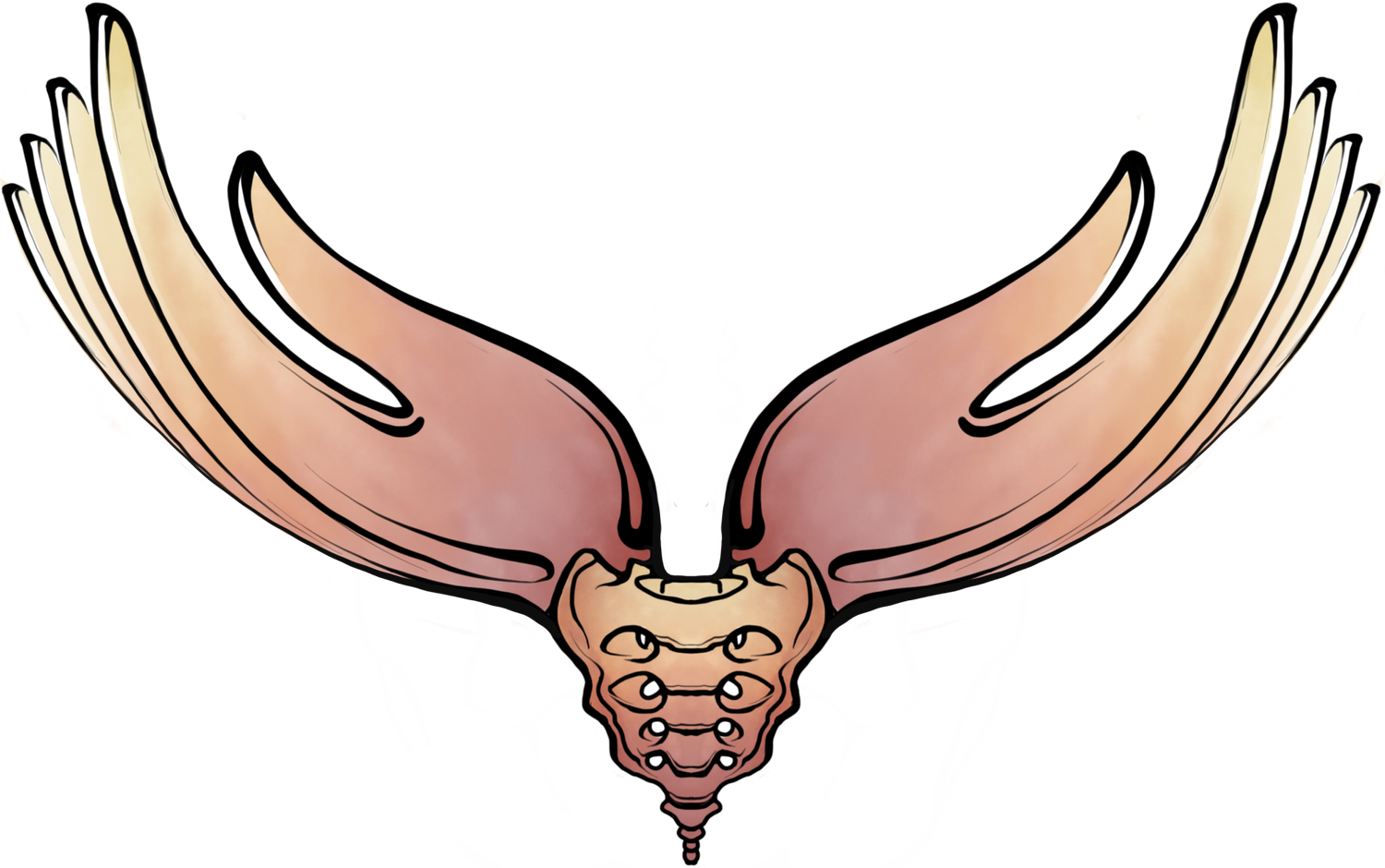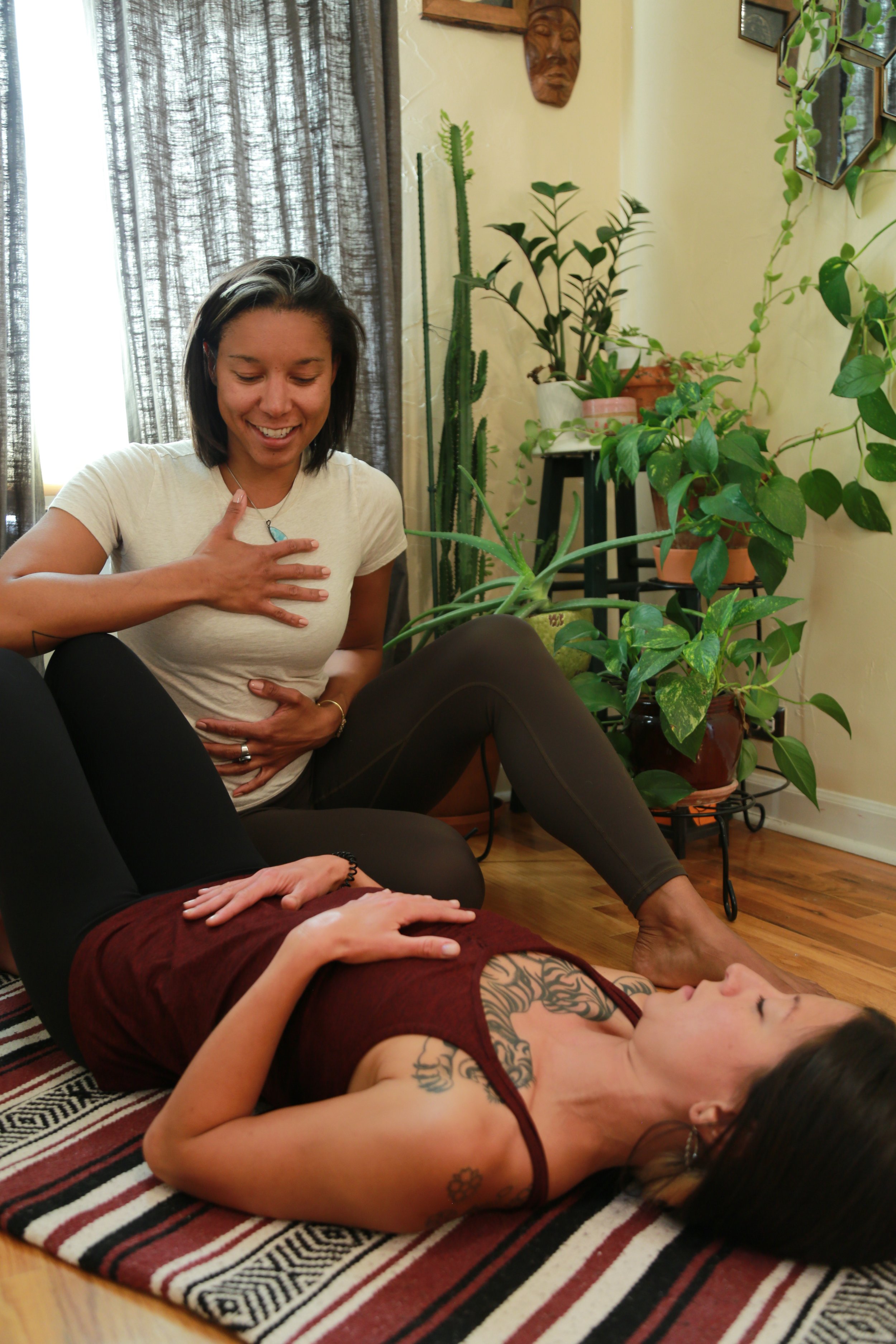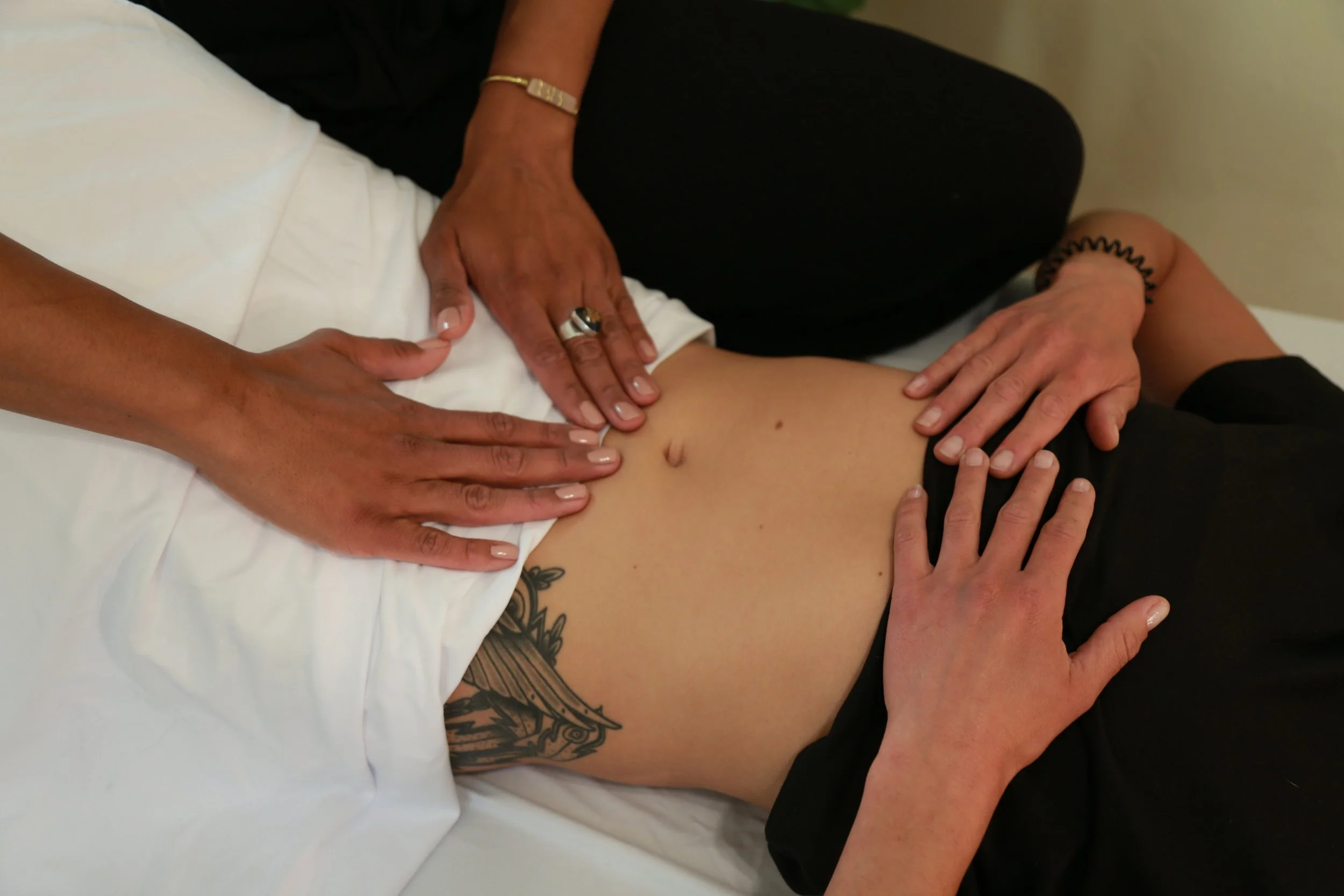
Services
Treatment Approach
I am fairly fluid by nature and will incorporate a variety of interventions. I work with the intention of helping you to feel more connected to your body while providing you with new inspiration on how to manageably incorporate the resonant take-aways from our session into your daily life.
Specialty Areas:
Pelvic Floor Dysfunction | Incontinence | Sexual Health | Pelvic Pain | Sensory Processing
Eating Disorder Recovery | Anti-Racism Advocacy
Interventions Include:
Functional Movement Training | Self Care Development | Relaxation Skill Development | Nervous System Regulation Training | Targeted Exercises | Touch Therapy | Breathwork | Postural Retraining | Trauma-Informed Care | Hydrotherapy | Abdominal Massage | Myofascial Release | Soft Tissue Mobilization | Chronic Pain Recalibration | Health Advocacy | Eating Disorder Program Consultation | Anti-Racism Research and Coaching
“Working with Rachel on my pelvic floor issues has changed my life. After just two home sessions, I noticed better results than I did going to PT for six months. I've dealt with incontinence issues since I was a child, so now in my 40s, I had run out of hope for a different experience. Rachel is caring and professional, and her holistic approach offered me ways to incorporate strengthening exercises into my daily routine -- the impact has been significant!”
— Alexis
How it Works
Start by contacting Rachel through the website, email or phone.
You can schedule a free 15 minute inquiry call which is an opportunity to share about your interest in working together and get initial questions answered.
You can also skip the inquiry call and schedule an initial evaluation session.
Once the initial evaluation is scheduled, you will receive the intake paperwork. Please complete 24 hours prior to the first session, as this will optimize our time together.
During our initial session, we will complete a more thorough evaluation where I will gather additional subjective and objective information in addition to assessing functional aspects such as posture, breath, coordination, and strength. Internal assessment may or may not be something incorporated during the initial evaluation based on your readiness and clinical implications.
Plan of care, frequency, and duration can vary greatly and is individualized based on your needs and functional goals.
Services can be provided in my office, at your home in the greater Denver area, or virtually. Virtual sessions can be a great option for Colorado residents living outside of the metro Denver area.

What Can be Treated
If you have received a formal diagnosis for the pelvic pain or pelvic floor dysfunction you are experiencing in your body, we can holistically address how the following diagnoses impact your function and quality of life. And even without a formal diagnosis (which is quite common) the associated symptoms can interfere with daily functioning. Clients have a high probability of experiencing relief or recovery from symptoms in response to pelvic rehabilitation therapy. The following are common, but not normal:
Incontinence refers to leaking urine, stool, or gas and can be related to urgency (urge incontinence), pressure with sneezing/coughing/movement (stress incontinence) ot both (mixed incontinence).
Pelvic Organ Prolapse such as uterine prolapse, cystocele, or rectocele can often feel like heaviness with bearing down, extended standing, or after penetration.
Lower Urinary Track Symptoms (LUTS) refers to trouble urinating or urinating too often (4-8x/day is ideal). Nocturia is a condition describing the need to get up more than 1x/night to urinate.
Diastatis Recti is a separation of the “6-pack” abdominal muscles. It is most commonly caused by pregnancy, but can also be related to bariatric surgery, obesity, and lifting injuries.
Pelvic Pain Conditions can be acute, sporadic, chronic, or activity-induced and the cause of that pain can be multi-faceted or unknown. Pain can also be cyclical, which may worsen at a certain time of day or menstrual cycle.
Some common causes of Chronic Pelvic Pain can include cysts, adhesions, endometriosis, scarring from pelvic infection, or surgery. This pain can impact daily functioning and mental wellbeing,
Coccydynia is tailbone pain which can be related to falls, injury, or chronic maladaptive posturing.
Dysmenorrhea refers to pelvic pain during the menstrual cycle. Only 15% of women with severe menstrual pain seek help. This low number can be attributed to pain being normalized/marginalized by society, barriers to seeking help, shame/hopelessness, or the belief that nothing productive will come of it. Some cramping can be normal, but not when it interferes with your ability to do the things you need and want to do.
Dyspareunia refers to pain with sexual intercourse/penetration and can cause significant psychological distress. Pain related to sex can also be associated with arousal, climax, erection, and/or ejaculation.
Interstitial Cystitis and Painful Bladder Syndrome are often experienced as bladder pressure or pain.
Vulvodynia and Vestibulodynia refer to pain around the vulva and vaginal opening, where vaginismus refers to pain and distress related to vaginal insertion.
Lichen Sclerosus is a genital skin condition that can cause discomfort, pain, fragility of the skin, and disruption to meaningful activities.
Proctalgia Fugax are intense muscle spasms in the pelvic floor that happen sporadically and can often be associated with fear there is something seriously wrong with one’s anus/rectum.
Some forms of Prostatitis have a strong component of pelvic floor dysfunction, and with pelvic rehabilitation, people can experience relief from pain and discomfort while improving participation in all kinds of activities, such as sex and going to the bathroom.
Examples of Functional GI Disorders that may benefit from holistic abdominopelvic therapy include constipation, IBS, Rumination Syndrome, Cyclic Vomiting Syndrome, abdominal bloating and abdominal distension.
Eating Disorders and related Functional GI Disorders
Research shows that best outcomes are achieved with a multidisciplinary approach when treating people with eating disorders. As an OT, I’ve seen how valuable functional and body-based therapy can be to helping people heal from eating disorders. If you struggle with an eating disorder and want a fresh approach, I can be a great addition to your treatment team. While we holistically work on functional GI and pelvic floor concerns, we can also address activities that you find particularly challenging like clothes shopping, going to restaurants with loved ones, or participating in sexual activities.
I am a certified eating disorder specialist (CEDS) and incorporate a health-at-every-size (HAES) approach.
“After the c-section birth of my daughter, I left my last OBGYN appointment with unanswered questions and unaddressed issues. With a six-week old at home, I was too exhausted and overwhelmed to know where to start. At that point, I had not even attempted to have sex yet, and when I did the pain was unbearable. Rachel met me where I was. In just a few, gentle sessions Rachel answered my questions and gave me tools that have made me feel more at home in my body and enabled me to have sex again for the first time since giving birth. Through working with Rachel, I also realized that my back pain, some heavy sensations, and pelvic floor changes are all interrelated. It helped me to better understand my body and have some new ideas about how to work on healing my body.”
— Samantha
Insurance
Liberate Pelvic Health currently accepts and directly bills Medicare and Medicaid.
For clients with private insurance, superbills can be provided upon request for reimbursement. A superbill is a receipt which includes therapy billing codes. Private insurance companies will often reimburse clients with this form of documentation, however it is not guaranteed.
Packages
The Pregnancy Three Pack (A great gift for a Mom-to-be)
$444 + tax (~5-10% discount). Looking for a group gift for a baby shower or are you a partner who wants to make sure the person carrying the baby feels supported in taking care of their body during pregnancy and postpartum? It can be so hard to prioritize self-care with a new baby.
It is recommended to use one session within the last month of pregnancy to prepare for birth, one session upon settling in at home after the birth, and one session following the six-week check up, however the three sessions can also be redeemed within one year of the birth. The package includes one in-home visit (within 25 minutes of downtown Denver, an additional $20 value). Email rachel@liberatepelvichealth.com for questions or to purchase the gift package.
The Four Pack
$555 + tax (~10% discount) includes four - 75 minute sessions to be used within one year of purchasing. Can purchase over the phone or while in session.
The Seven Pack
$888 + tax (~ 18% discount) includes seven - 75 minute sessions to be used within one year of purchase. Can purchase over the phone or while in session.
Individual Sessions (75 minutes)
$155 + tax (in-office or virtual)
$175 + tax (in-home visits within 25 minutes of downtown Denver)
Financial scholarships are available upon request for those in need and based on bandwidth. Please inquire by emailing rachel@liberatepelvichealth.com regarding your situation.







